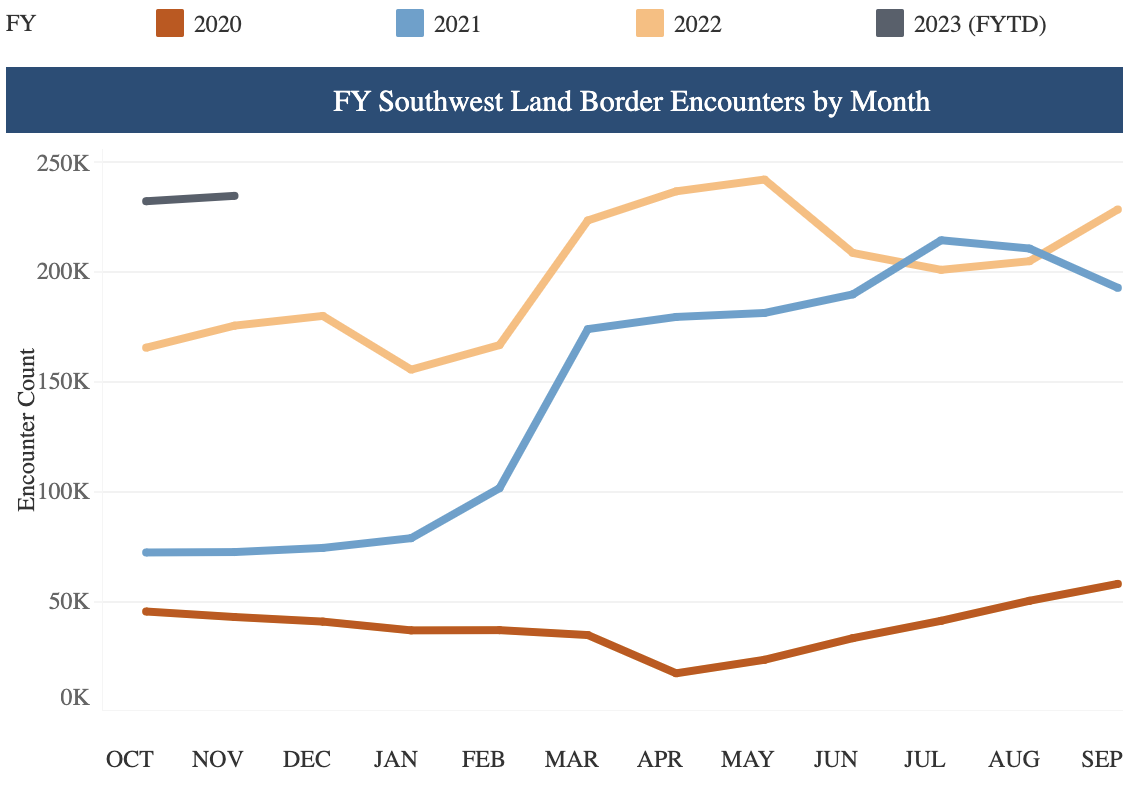Limits to immigration are necessary to enable us to meet our ecological, environmental, and conservation goals. From a practical standpoint, there is very little difference between having no immigration limits and having unenforced immigration limits.
|
Hundreds of millions of people around the world would like to come to the U.S. and consume like Americans. But if everyone in the world consumed like Americans, we would need five earths to provide all of the resources.
Many Americans are working to reduce their individual consumption and shrink their ecological footprint. But all of their collective efforts are undermined by Congress and the Executive branch increasing the total number of consumers via legal and illegal immigration.
The record-breaking wave of illegal immigration is occurring right now because economic migrants know they have a very high chance of being released into the United States (with a work permit) if they enter illegally and claim to have a “credible fear” if they return. By law, they should be detained, but most are released (with work permits) and never required to return even if their asylum claim is denied.
As the Custom and Borders Protection chart below shows, the word has gotten out.

“The poor people of the world may be poor, but they are not stupid” says Professor Jan Ting in his still-relevant Obama-era TedX talk. “If we want more illegal immigration, all we have to do is lower the costs and increase the benefits.”

There is nothing wrong with economic migrants desiring a better life. Rather, there is plenty wrong with the government giving them a realistic expectation of being released after entering illegally. To do so encourages risky journeys, empowers human smugglers, and undermines limits set by Congress. Yet we live in a world of limits, even when politicians and policymakers ignore them.
The average American’s ecological footprint is about 15 football fields. That’s what it takes to provide the raw materials and products required to sustain the average American’s lifestyle. People come here to improve their lives; i.e. to live like Americans – a reasonable motivation! But the American lifestyle exacts a cost that we can roughly estimate.
The U.S. issues over a million green cards every year. An estimated 900,000 migrants were released into the U.S. last year after entering illegally. Another estimated 600,000 avoided apprehension at the border. Let’s do some rough ecological-footprint math:

That’s “375” followed by five zeroes. Unsustainable immigration and the ongoing border crisis put immense demands on our resources. According to Gallup, another 150 million adults around the world are ready to follow if they get the opportunity. At average American consumption rates, that would equal an additional ecological footprint of 2,250,000,000 football fields. We have to have limits; and limits have to have credibility.
H.R. 29, the Border Safety and Security Act would take the modest step of explicitly requiring the Department of Homeland Security to follow the law. The bill would stop the illegal releases and leave the agency with three options for people entering illegally: 1) detain them pending their asylum hearing; 2) return them to Mexico (or Canada) to await their asylum hearing; 3) or return them to their home country. The bill would help discourage fraudulent asylum claims and lower illegal immigration overall.
|
JEREMY BECK is a V.P., Deputy Director for NumbersUSA